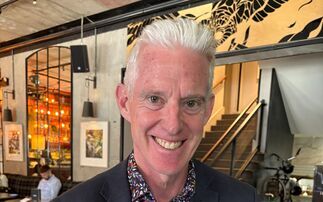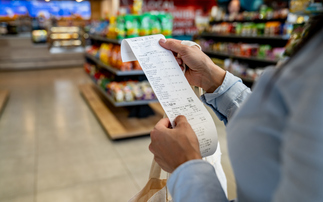A global climate deal could make a big difference to companies already striving to eliminate deforestation and bring laggards into the fold
Reducing Emissions from Deforestation and Degradation (REDD) and investments in green commodities have become to the land sector what renewables are to the energy sector. These are the innovations we have at our fingertips to scale up to adapt to a resource- and carbon-constrained world.
Negotiators at the COP21 Paris climate talks will focus significantly on forests, and are expected to close the deal on REDD+ in the larger agreement. Meanwhile, many global companies are already committed to producing and sourcing soft commodities like paper, palm oil, soybeans, and beef in ways that address climate change and cut deforestation.
In all, hundreds of major companies representing many trillions in trade, including those companies that do 90 per cent of the global palm oil business, have pledged to eliminate commodity-driven deforestation from their supply chains by 2020 or 2030. They include the 52 companies that signed the New York Declaration on Forests, those from the Consumer Goods Forum in the Tropical Forest Alliance 2020, as well as companies in the CDP / We Mean Business Coalition, and many other major companies who have made individual "deforestation-free" declarations.
They've undertaken these commitments even without a global climate agreement (most climate agreements aren't business-focused anyway). But reaching an agreement in Paris could make a big difference to companies already striving to eliminate deforestation, and bring other companies who are lagging behind into the deforestation-free enterprise. More certainty about the rules of the REDD game should also benefit business by helping get governments in the countries where they operate moving in the same direction.
Since REDD's inception at the 2007 COP in Bali, with nearly $8bn pledged to date, many countries have invested in creating the conditions and capacities needed to implement deforestation-free goals. They've achieved a lot, but there is still lots of work needed, including better land-use planning, forest governance, and regulatory reform.
REDD countries still face major challenges when it comes to assessing the status of their forest resources and threats to them. The same is true for companies trying to assess how forests fare in their commodity supply chains. For example, knowing if land producing oil palm or beef has been recently deforested requires monitoring changes in forest cover, which is indispensable both to a country's REDD programme and a company's supply chain management. But surveying large swaths of forest in real time is technically difficult, and until recently, there was often very limited capacity to do it. Today forest monitoring systems are getting better, thanks largely to REDD developments.
With deforestation-free pledges, many companies have also vowed to respect social and environmental safeguards. But they will have trouble tracking and resolving conflicts over land titles, and preventing violations of human rights in forest conflicts, unless governments are committed to reforms on those fronts.
Increasingly, they are. REDD countries have been setting up better systems to safeguard and report on risks to forest communities and the environment. Broader efforts to include indigenous peoples and forest communities in decision-making have been fostered through REDD dialogues, and that can help head off or resolve forest conflicts. Such improvements have been essential to companies operating in these countries, and they should continue.
But so far, no one can say the promise of REDD has materialised. There is less potential now for large amounts of financing through carbon markets to conserve vast amounts of tropical forest under threat than there was. REDD implementation has proven more complicated than we once thought. But the trend toward companies staking out goals to end deforestation, and integrating them with sustainable agricultural planning and production, put REDD's promise more within reach.
A global agreement from Paris would foster the trend. It would leverage more progress in more places on creating the key conditions for stopping deforestation and restoring degraded lands, especially in tropical landscapes, which sequester the most carbon and harbor the most biodiversity. It would consolidate recent gains in getting the forestry and agriculture sectors in different countries working together. By laying out REDD's rules of engagement for everyone, it would help guide better, more coordinated land use decisions. Those are conditions the private sector needs to maintain and build on the remarkable momentum it has achieved, as more companies work to eliminate deforestation from their supply chains.
Jeffrey Hayward is the director of Rainforest Alliance's climate programme. He will lead a Rainforest Alliance delegation to the COP 21 meeting in Paris.
This article is part of BusinessGreen's Road to Paris hub, hosted in association with PwC







